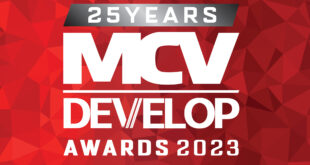If the last couple of years have taught us anything, it’s that we can never take too much for granted. Covid-19 may or may not be something that we continue to look at through the rear view mirror, but its legacy of remote and hybrid working continues to provide opportunities while posing questions around productivity.
Throw in the ever-present issue of a persistent skills shortage and a cost of living crisis that was nowhere to be seen twelve months ago, and it’s clear that it’s a unique and challenging time for game industry recruitment. To help us get a clear picture of how things have been, how they are now and how they might develop over the coming year, we’ve asked a crack team of in-house and agency recruitment experts to give us their take on the state of games industry recruitment, both for those with positions to fill and those eager to find their next challenge. Next up is Keira McGarvey, head of people at FuturLab.
What have been the main challenges that recruiters have faced during 2022 and how have they/you worked to overcome them?
There are more open positions than there are candidates actively looking for roles.
It’s more important now when speaking to candidates to really highlight all the positives and benefits on your first contact with a candidate, whereas this would normally be something that typically is done at the end of the process.
How is the worsening cost of living crisis manifesting itself in terms of recruitment and in-work support?
In recruitment we are seeing that people are becoming more reluctant to leave a role due to the fear of uncertainty that comes with starting a new role with a new company.
Offering mental health support to employees is also something that is increasing, due to the impact the cost of living crisis is having on many people’s mental health.
Is remote / hybrid working here to stay?
Absolutely, we are a remote first studio and by changing to this model we have been able to attract talent from across the UK.
Do you feel the industry has moved forward in terms of diversity and inclusion this year? How so? Can you offer any examples?
I feel steps are being made to move forward and become a more diverse and inclusive industry. We have become pledge partners with Ukie, who have pillars companies can choose to work towards achieving in order to become more diverse and inclusive. FuturLab has adapted their recruitment process to align with their best practice guidelines, in terms of recruiting diversely and inclusively.
What industry initiatives or programmes put in place recently (by your organisation or others) have inspired or impressed you and why?
Into Games have launched a programme which aims to support young people that would like a career in the games industry, by making it more accessible through training, mentoring and access to tech, regardless of their background.
This is a fantastic incentive, unfortunately many young people do not have access to the technology needed and by providing access to this it gives them the opportunity to learn and build their skills to allow them to pursue a career in this industry. By also providing apprenticeships for young people, it gives them the opportunity to gain further qualifications in cases where university may not have been accessible to them.
What are your predictions for 2023 in terms of the challenges and opportunities that recruiters might face?
I think the main challenges will be sourcing candidates. The trend of there being more roles than candidates will continue as the industry keeps on growing.
There is the opportunity to review and refresh employee benefits. Traditional benefits, such as weekly beers or early finishes on a Friday, aren’t as important now as they once were. People are looking for things like private health care, better employer pension contributions.
What’s the one piece of advice you would give someone looking to find or fill a role that you wouldn’t have considered a year ago?
Consider changing to a remote or hybrid work model. With people more reluctant to relocate, it will give you access to a much larger talent pool.

 MCV/DEVELOP News, events, research and jobs from the games industry
MCV/DEVELOP News, events, research and jobs from the games industry




